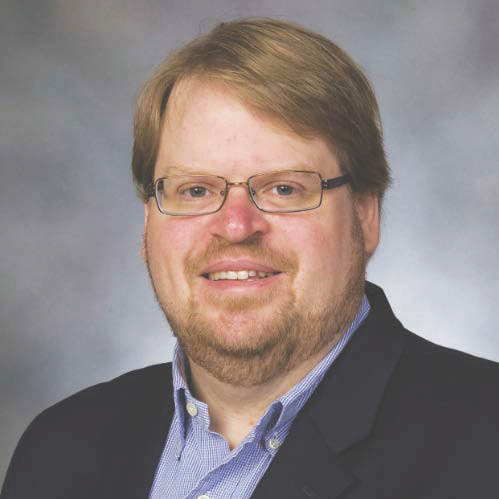In conjunction with our co-sponsor, the Clements Center for National Security, the International Affairs Society is hosting our annual RoundTable on the topic: “National Security in the Digital Age: How Cyberattacks Pose a Threat.” We will be hosting the event over Zoom on Monday, April 19th from 6:00 - 7:30 PM CST. This event is a panel-style discussion moderated by our officers. During the event, we will be discussing a wide variety of issues within the topic, including critical infrastructure protection, the black-market cyber arms trade, Internet of Things vulnerabilities, international standards for cyberwarfare, and much more. Viewers will also be able to pose their own questions to our panelists during the Q&A portion of the event. Below you will find our panelists’ bios.
RSVP FOR ROUND TABLE HERE.
Zoom link: https://utexas.zoom.us/j/92573228146
Zoom ID: 925 7322 8146
Dr. Eman Hammad
Eman Hammad received her Ph.D. in Electrical Engineering from the University of Toronto in 2018. Eman combines practical experience and theoretical research to shape her vision for resilient-by-design solutions in the connected world. Her research focuses on the cyber-physical security and resilience of smart power systems. Her work investigates how a deeper understanding of interactions between critical infrastructure systems and enabling technologies can help design new classes of operational solutions that are more resilient to cyber/physical disruptions. Eman’s research interests include cyber-physical security, resilient autonomous systems and operational trust. After her PhD, Eman joined the cybersecurity & privacy team at PricewaterhouseCoopers (PwC) as a cyber-physical security specialist. In her role, Eman developed tools and frameworks to help critical infrastructure clients assess and improve their cybersecurity readiness and resilience.
Eman has published 48 peer reviewed articles in highly ranked journals and conferences. Her research has been recognized by IEEE SmartGridComm Best Paper Award, and the Institute of Sustainable Energy Best Poster Award. Eman has been an active volunteer with IEEE serving with different committees. Her service was recognized by the IEEE Toronto Exemplary service award, and by the IEEE ComSoc Chapter Achievement Award.
Dr. Chris Bronk
Chris Bronk is an associate professor of information science and technology, with tenure, at the University of Houston. He has worked on a number of topics, including: cybersecurity education; social media and influence campaigns; cyber workforce development; international conflict and norms online; and applied cybersecurity for energy and logistics. He has published a book, Cyber Threat: The Rise of Information Geopolitics in U.S. National Security and has contributed to or drafted more than two-dozen academic papers. His academic work has been sponsored by the NSF, Department of Energy, Department of Defense, Deloitte, Microsoft, and AT&T. He has served as both a Foreign Service Officer and Senior Advisor at the U.S. Department of State.
Director of the University of Houston's graduate cybersecurity program, he has advised students who now work in banking, computing, energy, and government. Bronk is a widely quoted source on cybersecurity mattes, with his opinion or input appearing in The New York Times, The Wall Street Journal, der Spiegel, Foreign Policy, Scientific American, CNN, the BBC, and The Houston Chronicle. He holds an appointment in Rice University's Department of Computer Science. In addition to his Ph.D. from The Maxwell School of Syracuse University, Bronk also studied international relations at Oxford University and received a bachelor's degree from the University of Wisconsin - Madison.
Mr. David Kneeland
David Kneeland is a United States Marine Corps veteran who currently serves as a Business Outcome Specialist for Forcepoint, a leading multinational cybersecurity firm headquartered in Austin, TX. He received his Bachelor of Arts in History and Government as well as a Master of Global Policy Studies from The University of Texas at Austin. While at the LBJ School of Public Affairs, he was a Brumley Cybersecurity Graduate Fellow with the Robert Strauss Center where he authored, “Asking The Right Questions: Cybersecurity Concerns in Texas Oil and Gas.” as well as “From Cold War Civil Defense to Digital Preparedness: How the Nuclear Analogy Can Inform Thinking About Cybersecurity.” Using the findings from his research, David drafted policy recommendations for the Texas Legislature and Railroad Commission on mitigating cybersecurity vulnerabilities in industrial control systems. For this work, David was awarded the ADM (Ret.) McRaven Chancellor’s Fellowship for academic excellence in national security studies. David is well recognized as an expert on information security and communications technologies with over 12 years’ experience in those fields.



